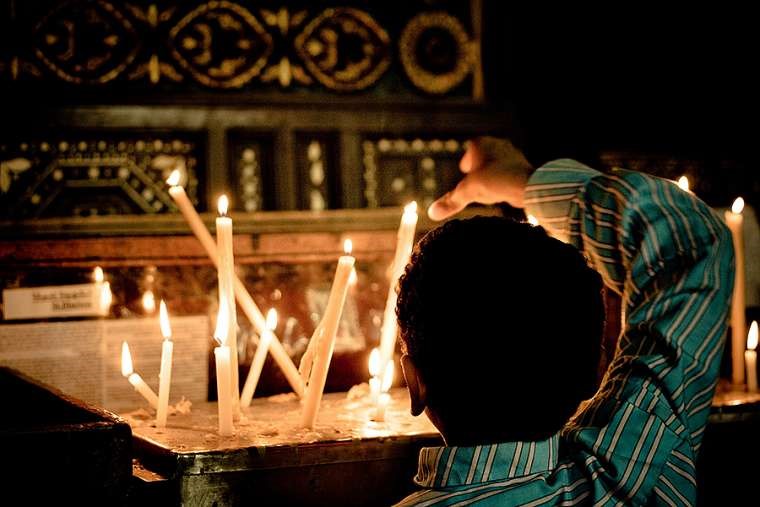US Catholics’ Awareness of Christian Persecution Is Increasing
Aid to the Church in Need study comes amid increased persecution of Christians in many countries worldwide.

WASHINGTON — Nearly half of American Catholics say global persecution of Christians is “very severe,” a 16% increase from a year ago, according to a new survey commissioned by the papal charity Aid to the Church in Need.
Despite this increase in awareness, the American Catholics surveyed ranked human trafficking, poverty and the refugee crisis as more urgent problems than the global persecution of Christians, the study says.
“It is heartening to see that U.S. Catholics have a growing awareness of and concern about the persecution of Christians,” said George Marlin, chairman of ACN-USA, in a March 19 statement.
“It is telling that human trafficking, poverty and the refugee crisis get more attention from U.S. Catholics than the persecution of Christians,” he added, saying that the survey “strongly suggests that the U.S. Catholic Church, both at the parish and diocesan levels, should get more engaged with the global persecution of Christians around the world.”
The study examined the extent to which American Catholics are aware of the persecution of Christians around the world; the countries and regions where they consider Christians to be most severely persecuted; specific measures and policies they want the U.S. and other Western governments to pursue to help and protect persecuted Christians; the extent to which they feel that the Pope, their bishops and their parishes are prioritizing the persecution of Christians; and actions they believe they can and should take themselves.
Only 19% of the survey’s respondents said their parish is very involved with the issue of global persecution of Christians, down from 37% a year ago. In addition, 22% said they are unsure about their parish’s involvement in this area.
Similarly, only 24% of U.S. Catholics believe their bishop is “very engaged” with the issue of Christian persecution, though more than half say they think Pope Francis is “very engaged” with this issue.
When asked what they themselves should do to help persecuted Christians around the world, American Catholics ranked prayer highest, followed by raising awareness at the parish level; donating to agencies that work to support persecuted Christians; and contacting their members of Congress. However, the report found that almost half of U.S. Catholics have not donated in the past year to an organization that helps persecuted Christians.
Regarding potential policies by the U.S. and other Western governments to deter the persecution of Christians, respondents ranked diplomatic pressure as most important, followed by economic sanctions; granting victims of persecution emergency asylum; and supporting persecuted Christian communities financially.
U.S. Catholics are least in favor of military intervention and the arming and training of persecuted Christians, but more than 60% of U.S. Catholics say that the Church must play a hands-on role in providing emergency and humanitarian aid to persecuted Christians around the world.
The study’s release comes amid increased persecution of Christians in many countries worldwide. ACN released a report last November that highlights 38 nations with significant religious-freedom violations, and in more than half of those countries, conditions for religious minorities have deteriorated since 2016.
Some notable countries where persecution of Christians is taking place include China, where the communist government is brutally cracking down on the practice of religion despite a September 2018 provisional deal with the Vatican meant to ease tensions between the faithful “underground” Church and the state-sponsored Chinese Patriotic Catholic Association, the report said.
In other countries, including North Korea, Saudi Arabia, Yemen and Eritrea, “the situation [for religious minorities] was already so bad, it could scarcely get any worse,” it added.
Islamic extremism, fueled by conflict between Sunni and Shia Islam, accounted for the persecution faced by minorities in 22 of the 38 countries highlighted.
Interreligious conflict has been especially acute in Nigeria of late, where clashes between Christian and Muslim herdsmen have killed at least 120 people in the past few weeks and claimed thousands of lives in recent years, according to local reports.

















